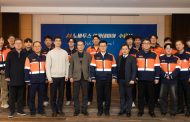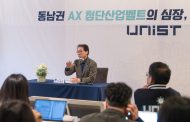UNIST today announced that it has entered a strategic partnership with the Abu Dhabi National Oil Company (ADNOC), the largest state-run oil company in the United Arab Emirates (UAE), to lead the global digital carbon-neutral market.
This partnership aims to lead the development of a decarbonization optimization system for large-scale oil refining and petrochemical processes, leveraging the power of Artificial intelligence (AI).
The signing of the Strategic Collaboration Agreement (SCA) between UNIST and ADNOC took place in the Abu Dhabi Energy Center in the UAE at 2 PM on May 10, 2023. The agreement was signed by UNIST President Yong Hoon Lee, Chief Technology Officer Sophie Hildebrand at ADNOC, and President Omar AI Marzooqi at AIQ, ADNOC’s AI joint venture.
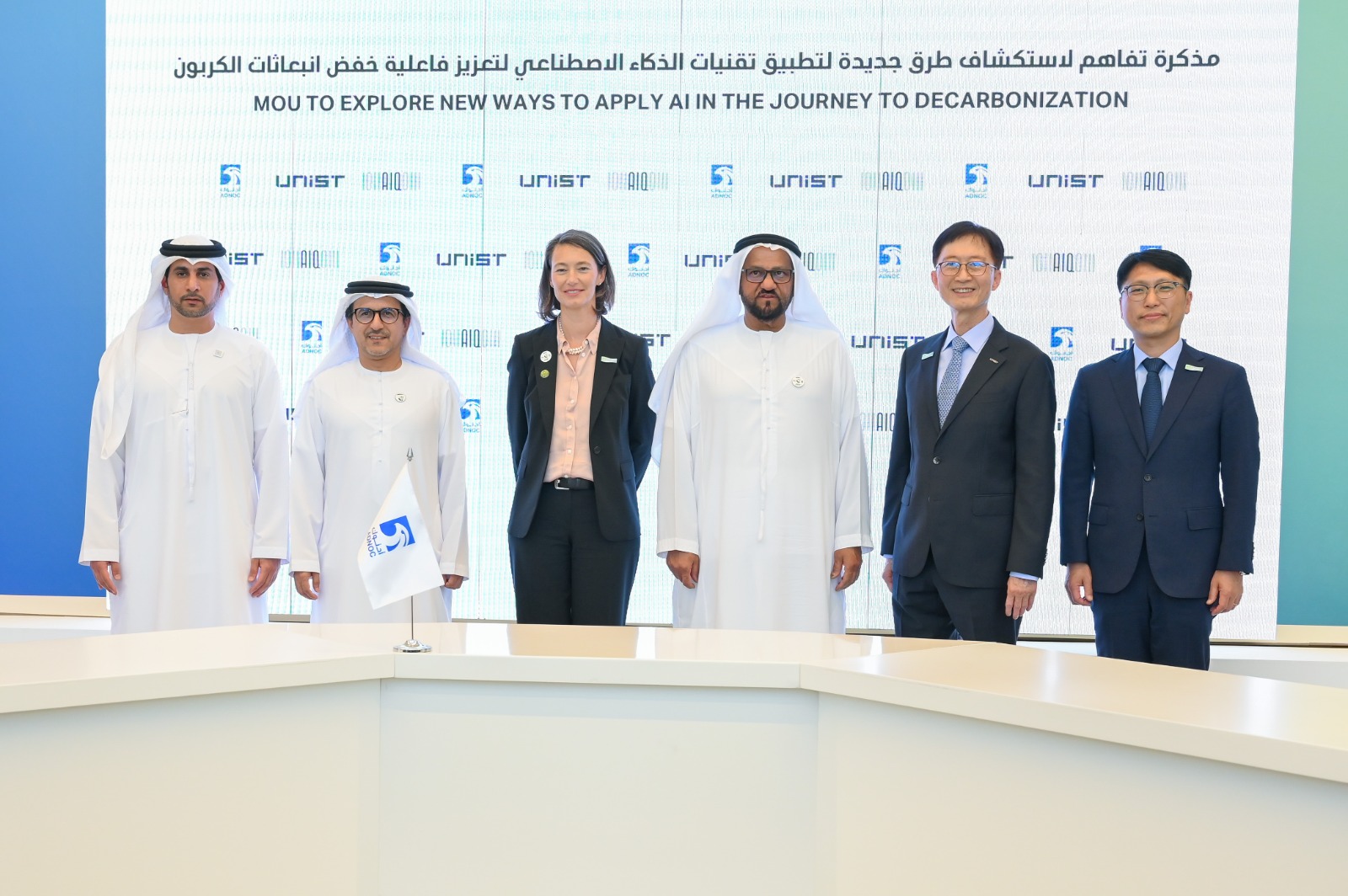
From left are AIQ CEO Omar Al Marzooqi, Executive Director Musabbeh Al Kaabi of Low Carbon Solutions & International Growth, CTO Sophie Hildebrand of ADNOC, Executive Director Abdulmunim Saif Al Kindy of ADNOC’s Upstream Directorate, UNIST President Yong Hoon Lee, and Director Hankwon Lim of UNIST Carbon Neutrality Demonstration and Research Center.
The joint efforts of UNIST and ADNOC will launch two digital carbon-neutral leading projects in the second half of this year. These projects are focused on developing AI technology for the optimization of continuous multi-step processes of liquid chemicals in oil and petrochemical plants, as well as environmental monitoring systems that utilize AI and satellite images. Additionally, a digital carbon-neutral joint research center will also be established as early as this year.
When the joint research center is launched, they plan to push for the following three tasks: “Development of optimized refining processes using AI,” “Decarbonization and sustainable refining processes,” and “Building of an eco-friendly hydrogen industry model.”
Under this partnership, the two organizations have agreed to cooperate closely with central and local governments, research institutes, and private companies in both South Korea and the UAE. Additionally, they will actively cooperate in establishing a “digital carbon neutral strategic partnership” at the national level, with the participation of others.
This partnership will enable both organizations to leverage their respective strengths and expertise to lead the global digital carbon-neutral market. UNIST and ADNOC are committed to achieving sustainable development and mitigating the impact of climate change, and this agreement is a significant step towards that goal.
To achieve these goals, both parties have agreed that a delegation from ADNOC Group will visit UNIST and Ulsan City in the second half of this year to discuss specific measures for cooperation. The three parties seek to discuss the possibility of hosting a joint event on the topic of ‘Global Digital Carbon Neutral‘ at the 28th Conference of the Parties on Climate Change (COP 28), which will take place in Dubai at the end of November. They will also work to expand their cooperation at the government level, including cooperation with the Ministry of Science and ICT (MSIT).
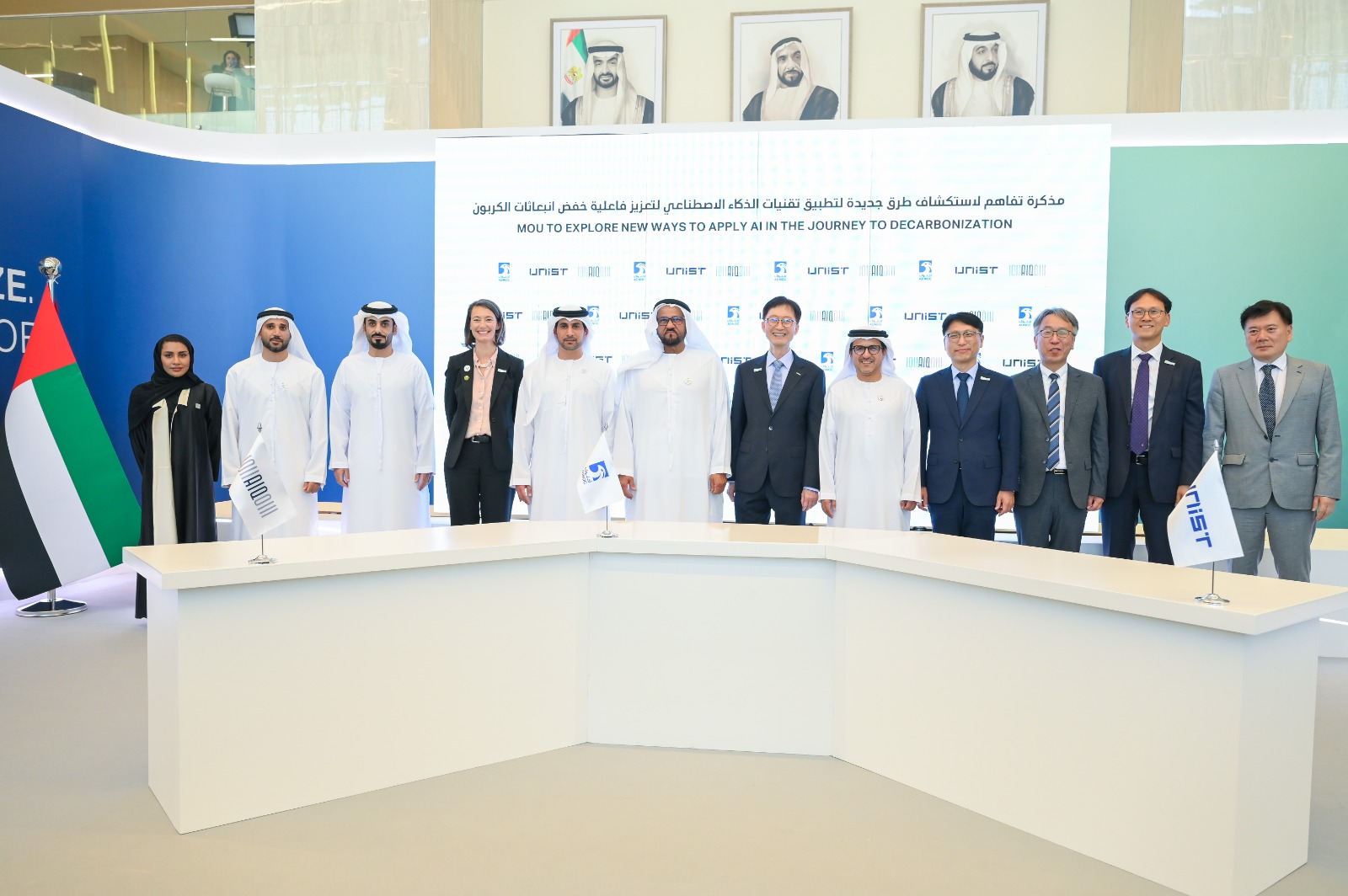
Attendees at the ceremony are posing for a group photo. The ceremony has been also attended by Executive Director Abdulmunim Saif Al Kindy of ADNOC’s Upstream Directorate and Executive Director Musabbeh Al Kaabi of Low Carbon Solutions & International Growth.
Earlier in March, UNIST officials along with Mayor Doo-gyum Kim of Ulsan Metropolitan City, and other delegations visited the UAE to discuss ways to establish strategic cooperation with ADNOC for digital carbon neutrality. As a result of these discussions, the two entities have agreed to launch leading projects, establish a joint research center, and co-host COP-28.
“Through this agreement, UNIST has secured its position as a leading organization in the global digital carbon neutrality field,” stated UNIST President Lee, expressing his satisfaction with the agreement. “We aim to expand strategic cooperation between Korea and the UAE with ADNOC’s return visit in the second half of this year, serving as a catalyst.”
UNIST has been at the forefront of research in the digital carbon-neutral field, collaborating with the Graduate School of Artificial Intelligence, which was established in 2020. In 2022, UNIST opened the Graduate School of Carbon Neutrality to further its research efforts in this field and promote global cooperation.
ADNOC Group, which signed a strategic collaboration agreement with UNIST, is led by Dr. Sultan Ahmed Al Jaber, the Minister of Industry and Advanced Technology, who also chairs COP-28. ADNOC has allocated $15 billion (approximately 20 trillion won) towards its low-carbon growth budget and has established the “low-carbon international growth sector” to address climate change.


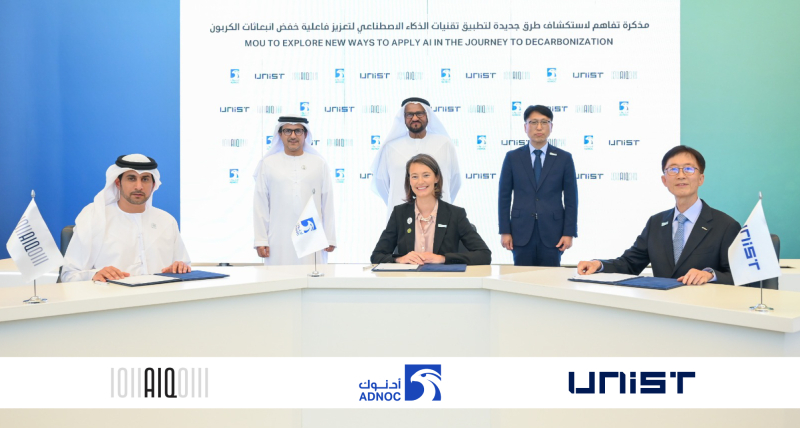








![[2026 UNIST Commencement] UNIST Confers Degrees to 883 Graduates](https://news.unist.ac.kr/wp-content/uploads/2026/02/사진-2026학년도-UNIST-졸업생들이-학사모를-위로-던지며-졸업을-축하하고-있다-1-800x413-190x122.jpg)
